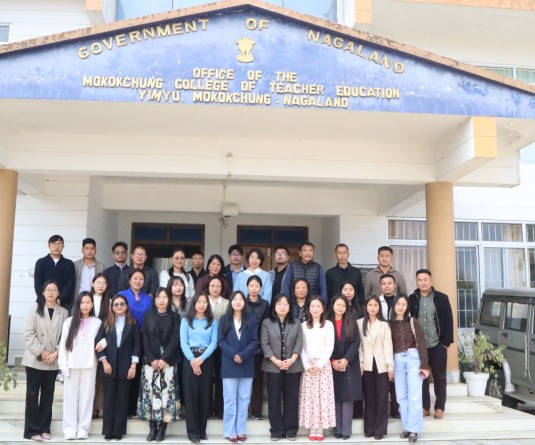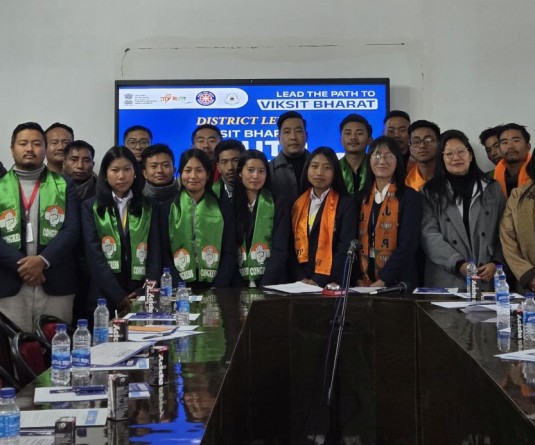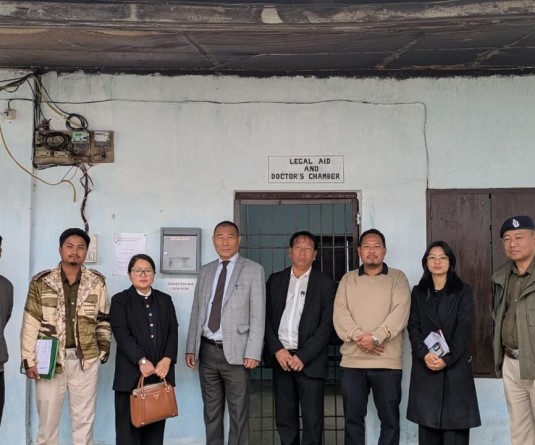
DIMAPUR, OCTOBER 25 (MExN): Various state service associations have reiterated their support to the Joint Coordination Committee (JCC) in its ongoing demand for the withdrawal of backdoor appointees from the IAS select list and for upholding merit-based induction into the Indian Administrative Service (IAS) cadre.
In a press statement issued by the JCC, it stated that several associations held their respective executive meetings over the past days to express solidarity with the committee’s stance on safeguarding meritocracy and fairness in the IAS induction process.
The Nagaland Secretariat Service Association (NSSA), during its Executive Meeting on October 9 reaffirmed its “total support and cooperation with the JCC in the collective effort to safeguard meritocracy and fairness in the induction process to the prestigious Indian Administrative Service (IAS) cadre.”
Similarly, the Federation of Nagaland State Engineering Services Associations (FONSESA), comprising eight affiliated engineering associations, held its Executive Meeting on October 22 and “reiterated its firm commitment to support the JCC until the State Government fulfils its two-point charter of demands.”
The Nagaland Finance and Accounts Service Association (NF&ASA), in its Executive Meeting on October 24 also “pledged its unwavering and active support to the cause led by the JCC.”
The Confederation of All Nagaland State Service Employees’ Association (CANSSEA), along with over 50 affiliated associations, convened an emergency executive meeting on October 24, 2025, to deliberate extensively on the ongoing issue concerning the induction of IAS officers under the Non-State Civil Service (Non-SCS) quota.
After thorough discussions, the house unanimously resolved “to continue extending full physical and logistical support to the Joint Coordination Committee (JCC) in its steadfast stand to uphold meritocracy while selecting the candidates for empanelment and only candidates recruited through the public service commission should be selected.”
In a similar spirit, the Nagaland In-Service Doctors’ Association (NIDA), during its Annual General Meeting (AGM) on October 24, “resolved to maintain its full commitment and solidarity with the JCC in upholding the principles of merit-based selection and transparency.”
The JCC in its statement said that “public offices and administrative structures are meant to serve the people—not to be turned into private fiefdoms for a few privileged hands.” It cautioned that “when governance becomes synonymous with nepotism and favouritism, the trust of the public erodes, and the efficiency of the State collapses. This is not merely a matter of administrative irregularity—it is a moral and constitutional issue.”
“The public deserves answers,” the JCC said, questioning “how far have these connections influenced the functioning of the government? Are decisions being taken in the best interest of the State, or to satisfy private ambitions? Have regulatory and selection processes—especially those concerning appointments to high offices—been compromised under this invisible network?”
It asserted that “a government that claims to uphold transparency and good governance cannot remain silent when such serious allegations are circulating. An independent inquiry—monitored by credible and neutral institutions—is the need of the hour.”
The JCC further said that “every concerned Naga citizen must demand clarity, not out of political rivalry, but in defence of public integrity and accountability. If the administration is confident of its fairness, it should have no hesitation in opening its books for scrutiny. Silence, in this case, only deepens suspicion.”
“Governance cannot be a family affair. It is a public trust—and when that trust is betrayed, people have the right, and indeed the duty, to question and demand accountability,” the committee stated.
The associations, it added, stand united in their conviction that “only constitutionally valid and merit-based recruited candidates through the public service commission need to be selected in the empanelled list and the backdoor regularised candidates have to be withdrawn,” asserting that this “will ensure justice, equality, and integrity in public service—the foundational principles upon which governance must rest.”





